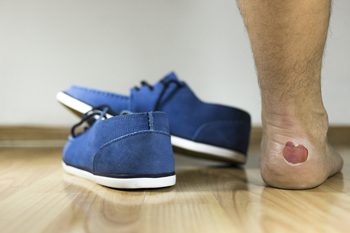What to Do About Blisters Between the Toes
Tuesday, 24 May 2022 00:00
A blister is a fluid-filled bubble that forms on the skin. Most often these blisters are caused by one toe repeatedly rubbing against another toe or the lining of a shoe and irritating the skin. These are referred to as friction or pinch blisters and can typically be treated at home. Wearing shoes that fit properly, keeping feet clean and dry, and not walking barefoot in warm, humid areas can help prevent friction blisters from forming. It is important not to pop or pick at a blister as it can become infected, but if it has broken, toes should be soaked in clean, warm water and Epsom salts. If you are unsure which type of blister has formed, you suspect an infection, or if the friction blister is not healing within a reasonable time, it is suggested you consult with a podiatrist to have it evaluated, treated, and to learn how the formation of your blisters can be prevented.
Blisters are prone to making everyday activities extremely uncomfortable. If your feet are hurting, contact the podiatrists of New England Family Foot Care. Our doctors can provide the care you need to keep you pain-free and on your feet.
Foot Blisters
Foot blisters develop as a result of constantly wearing tight or ill-fitting footwear. This happens due to the constant rubbing from the shoe, which can often lead to pain.
What Are Foot Blisters?
A foot blister is a small fluid-filled pocket that forms on the upper-most layer of the skin. Blisters are filled with clear fluid and can lead to blood drainage or pus if the area becomes infected.
How Do Blisters Form?
Blisters on the feet are often the result of constant friction of skin and material, usually by shoe rubbing. Walking in sandals, boots, or shoes that don’t fit properly for long periods of time can result in a blister. Having consistent foot moisture and humidity can easily lead to blister formation.
Prevention & Treatment
It is important to properly care for the affected area in order to prevent infection and ease the pain. Do not lance the blister and use a Band-Aid to provide pain relief. Also, be sure to keep your feet dry and wear proper fitting shoes. If you see blood or pus in a blister, seek assistance from a podiatrist.
If you have any questions, please feel free to contact our office located in Milton, MA . We offer the newest diagnostic and treatment technologies for all your foot care needs.




